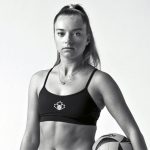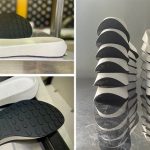Cornell became the first university to sever its licensing contract with Adidas over recent allegations of labor abuses. Last Thursday, President David Skorton sent a letter to Adidas Team, Inc., stating that due to the company’s refusal to give severance pay to the 2,800 workers it displaced upon the 2011 closing of one of its Indonesian factories, the University will terminate its contract with the company, effective Oct. 1.
“We believe that severance is a basic worker’s right as are a living wage, freedom of association and safe working conditions,” Skorton said in the letter. The full letter can be found at http://usas.org/wp-content/blogs.dir/1/files/2012/09/Leuenberger-Bob-9.13.12.pdf.
In the letter, Skorton said the termination follows a review by university officials of severance issues surrounding the closure of the PT Kizone factory in Indonesia in September 2010, and Adidas’s position on its severance responsibilities. It also reviewed the findings of the Worker Rights Consortium before it notified the Collegiate Licensing Company of its decision to terminate the contract.
“We believe that severance is a basic worker’s right, as is a living wage, freedom of association and safe working conditions,” wrote Skorton. “We are calling on the collegiate apparel industry to develop mechanisms whereby brands can be assured that the factories with which they do business have on hand sufficient and secured funds to pay workers what they are owed should a factory close. This gap in the apparel industry’s approach to worker rights is a critical issue that demands immediate attention.”
Skorton noted his hope that Adidas will take a leadership position in the industry and address these problems. If that takes place, Skorton indicated Cornell will be happy to re-establish its business relationship with the company.
On Sept. 6, the Cornell Licensing Oversight Committee, which was formed in 2010 to ensure that companies the University does business with uphold workplace standards, recommended to Skorton that the University cease business with Adidas altogether, according to The Cornell Daily Sun. Cornell’s contract with Adidas was a licensing contract, which gave the company the right to produce and sell apparel that bore the University logo in retail stores and online.
In addition to ending the business contract with Adidas, Skorton also announced the University will officially become a part of the Designated Suppliers Program.
The program – administered by an independent labor rights monitoring organization, the Workers Rights Consortium – requires University licensees to buy apparel from supplier factories that are “in compliance with their obligation to respect the rights of their employees,” DSP’s website states. The program also requires colleges that participate to ensure that the companies that design their apparel do so in factories that pay a “living wage” and “maintain long-term relationships with suppliers” according to DSP’s website.
“Cornell believes the DSP has the potential to improve dramatically the lives of workers involved in producing university-branded apparel,” said Skorton in a university statement. “The university has been a leader in advocating for worker rights and we see this as a significant step in eliminating sweatshop conditions from collegiate supply chains.”
He noted that Cornell has been involved in discussions about the DSP since it was proposed in 2005 by United Students Against Sweatshops and the Worker Rights Consortium, organizations with which the university has close relationships. The university stated its support of the program in principle at that time and participated in a DSP Working Group that met regularly to address the legal and logistical aspects of the program.”
Cornell said it now believes the DSP can be successfully implemented. Russell Athletic’s accomplishments in Honduras, where they have established two factories that honor freedom of association, and the success of the Alta Gracia factory in the Dominican Republic, which pays workers three times the average wage of workers in the region, “are proof that apparel manufacturing companies can treat workers fairly and remain profitable.”
He added, “Cornell realizes the DSP will require close cooperation between universities and their licensees. Universities need to understand the business realities of their licensees and licensees need to understand universities’ goals in protecting worker rights. This will require time. We therefore intend to phase the program in over several years.
“Cornell will be reaching out to its licensees in the coming weeks and looks forward to working closely with them. The DSP will only succeed as a partnership and the university intends to do everything it can to make it work.”
As far as is known, Cornell is the second university to officially join DSP, Li said. Rutgers University, the first school to join DSP, became a member of the group a few months ago.
The University announced that it was ending its contract with Russell Athletic in February 2009, when the company abruptly closed its Honduran factory reportedly because its workers attempted to unionize. In November of that year, however, Russell announced that it would begin complying with the University’s labor standards and rehire the 1,200 workers it fired, according to a University press release.Cornell later re-signed the Russell contract.
UW-Madison has also made waves for pondering a similar move for the past nine months.
“I commend Cornell President Skorton on his leadership to support the rights of the ex-PT Kizone workers and to insist that Adidas uphold its licensing agreement with Cornell University to ensure that the workers receive all wages and benefits that they are legally due,” Lydia Zepeda, a UW-Madison professor of consumer science who chairs the university’s Labor Licensing Policy Committee (LLPC), said in an e-mail to the Cap Times in an email. “We know from past experience that brands will uphold their licensing agreements if they are held accountable. This is why the UW LLPC has recommended since last December 2011 that the UW give notice to Adidas. The LLPC wants our athletes and fans to be able to wear sweat-free apparel.”















